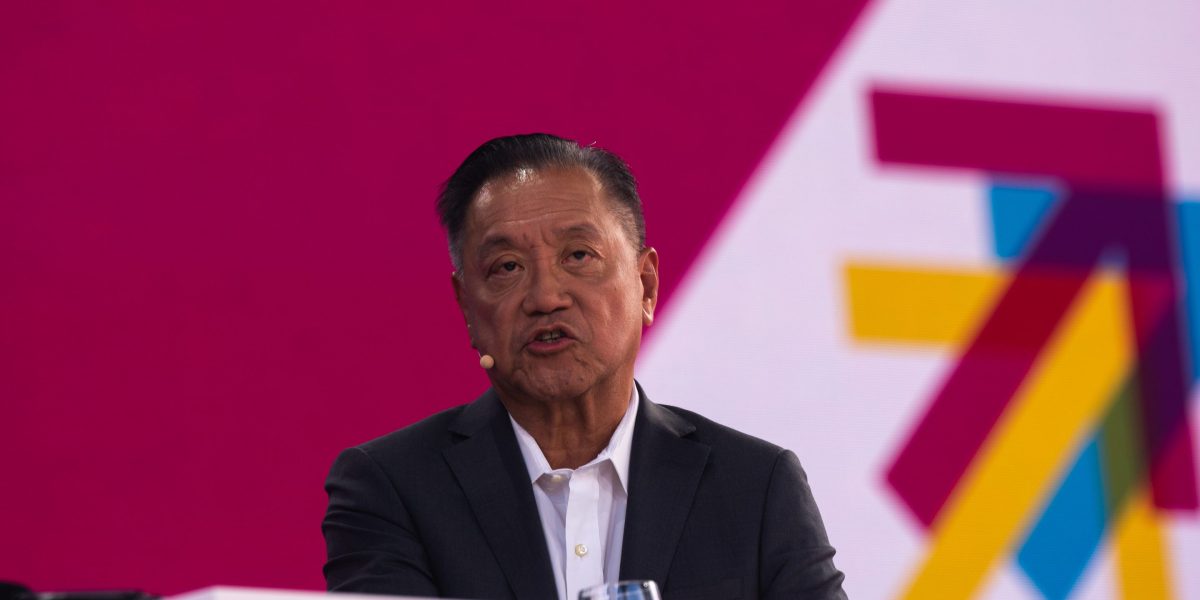Broadcom is laying off 1,267 Palo Alto-based VMware workers following its acquisition of the company
Chip manufacturer Broadcom wrote the latest chapter in the long story of return-to-office tensions between bosses and employees.
After completing its $69 billion acquisition of cloud computing company VMWare, Broadcom CEO Hock Tan issued a direct order to his new employees about where they must work. “If you live within 50 miles of an office, you get your butt in here,” he told the workers of previously remote-friendly VMWare.
The comments came during a meeting Tan hosted on Tuesday after the merger between the two companies officially closed, following approval from Chinese regulators. Like many other executives, Tan cited in-person work’s benefits to collaboration and company culture. “Collaboration is important and a key part of sustaining a culture with your peers, with your colleagues,” he said.



I’m re-evaluating my use of VMWare products now, that’s for sure.
Everything is going to be core based for licensing, and if you aren’t in their top 600 customers you will receive worst support. Both of those things have been publicly stated.
Yup. And I have a couple workstation licenses in need of an upgrade purchase that will probably not happen now. Linux KVM is looking more appealing.
For workstation there hasn’t been a need to use VMWare for over a decade now, if you’re on Linux. Server side, if you needed live migration you had a reason to stick with VMWare - but that also should’ve been solved about a decade ago. Pretty much the only two excuses for still using VMWare infrastructure are “it’s old infra, and we don’t really have the time to migrate away from it” or “our ops team is too incompetent to handle anything else”
For Linux yes I started using KVM and it works just fine for my needs on a workstation.
For Windows hosted VMs I preferred VMWare Workstation. It has a workflow that worked for me and I found it compatible with a wide range of guests. Linux guest support in HyperV is a joke. Virtualbox sucks for professional use because the functionality locked behind the extensions they force you to download is an invitation for Oracle to begin harassing for licensing with the threat of a software audit if you’re big enough a target.
I don’t mean for this to become a Linux vs. Windows thing. I have reasons that I need to use Windows. Though that’s not to say I’m not pushing for more Linux. Windows 11 is a big enough reason to ditch windows.
Now? The writing was on the wall years ago. Support has already taken a nosedive, and they’ve basically all but stopped selling anything except to the biggest customers.
I never needed to contact support for VMWare Workstation and when I did have a problem forums helped. So I didn’t notice. I did however notice when this whole Broadcom thing started taking shape and now it’s more obvious than before.
Give Proxmox a burl, very nice.
My biggest qualm with switching to proxmox is how painful it is to convert VMs. We have some VMs with multiple TBs of storage.
In order to move you have to install the drivers first, shut down the VM, copy the files over (slowly), convert the VM (takes forever even on a 6 drive NVME raid array), before creating a new VM with matching settings then booting and it finally will work. And if you forgot the drivers then you have to find a storage controller that works, boot up, install the driver, then shut down and change the settings.
You can skip the disk convert step and mount the vmdk files directly. Then after bootup you can use the move disk feature to live convert the disk type.
well that’s gonna be a beast you face anyway - it’d also happen if you had to implement your worst case DRP.
I’m not saying it’s gonna be hassle free, but uh, you’re migrating your infrastructure. It’s gonna be a big job.
VMware makes it easy. You can live migrate a physical (or virtual) machine to VMware. Then just shut down the physical machine and turn on the VM. But apparently nothing like this exists for proxmox.
There’s a vmware converter
Proxmox to the rescue.
XCP-ng is a good alternative. ProxMox is good for home labs.
Thanks I will check those out.
I tend to draw the line around the 500 VMs mark and whether you use hyper-converged hardware. Above 500 VMs you are likely to be using dedicated storage, where XCP-ng will scale more easily.
Proxmox makes hyper-converged management simpler than XCP-ng and can handle more complex networking setups out of the box.
But there is a pretty large overlap between their capabilities.
Do they have other products aside from their premium Virtualbox skin?